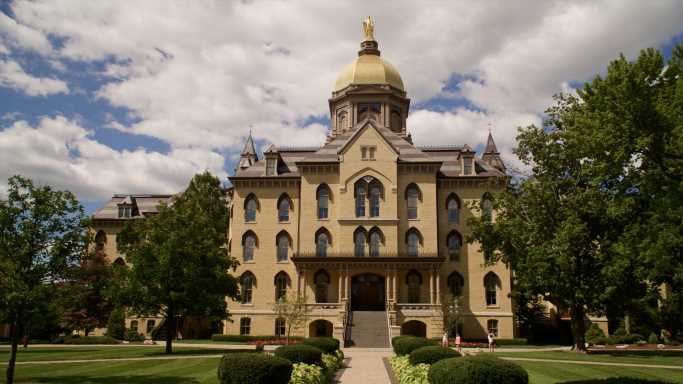Deciding where to go college is the first major life decision many Americans make. And while there are multiple factors to weigh when selecting a school – including cost and distance from home – many of the 16.6 million American college students today chose to enroll in the best school they could get into.
It is generally believed that graduates of elite colleges and universities are better positioned for success later in life. And there is plenty of evidence to back this claim. According to one study conducted between 1996 and 2014, about 38% of Fortune 500 CEOs and 45% of billionaires attended elite schools. (This is where the 25 richest American billionaires went to college.)
However, because of both the quality and rigor of academic programs offered at elite colleges and universities, these schools receive far more applications each year than they can accept. As a result, many of the best schools in the country are also the most selective. It is worth noting that those who graduate from top-tier institutions are high achievers to begin with, and therefore, any career success cannot be attributed to their college education alone.
Using data from the U.S. Department of Education, 24/7 Wall St. identified the hardest college to get into in each state. Colleges and universities were ranked based on an equally weighted index of median SAT scores among the school’s enrolled students in the 2020-2021 academic year and the school’s acceptance rate in the fall 2021 semester. Only schools with available data and at least 1,000 applicants for fall 2021 enrollment were considered. In both Alaska and Wyoming, only one school had available data, and it ranks as the most competitive by default only.
Despite ranking on this list, not all of these schools are considered elite. While there are several Ivy League institutions and other schools of comparable stature on this list, many states are not home to any top-tier colleges and universities. In over a dozen states, even the most selective school accepts over 50% of all applicants. For context, none of the eight Ivy League schools have an acceptance rate above 10%.
Still, even for those who cannot get into an elite college or university or do not want to travel out of state, the benefits of a college degree from most schools – particularly those on this list – are undeniable. According to the Bureau of Labor Statistics, the typical college graduate earns about 65% more in the workforce than those with only a high school diploma. Additionally, college graduates are nearly half as likely to be unemployed than those with no more than a high school education. (Here is a look at the highest paying college majors).
Click here to see the hardest college to get into in every state.
Click here to see our detailed methodology.
Sponsored: Tips for Investing
A financial advisor can help you understand the advantages and disadvantages of investment properties. Finding a qualified financial advisor doesn’t have to be hard. SmartAsset’s free tool matches you with up to three financial advisors who serve your area, and you can interview your advisor matches at no cost to decide which one is right for you. If you’re ready to find an advisor who can help you achieve your financial goals, get started now.
Investing in real estate can diversify your portfolio. But expanding your horizons may add additional costs. If you’re an investor looking to minimize expenses, consider checking out online brokerages. They often offer low investment fees, helping you maximize your profit.
Source: Read Full Article
